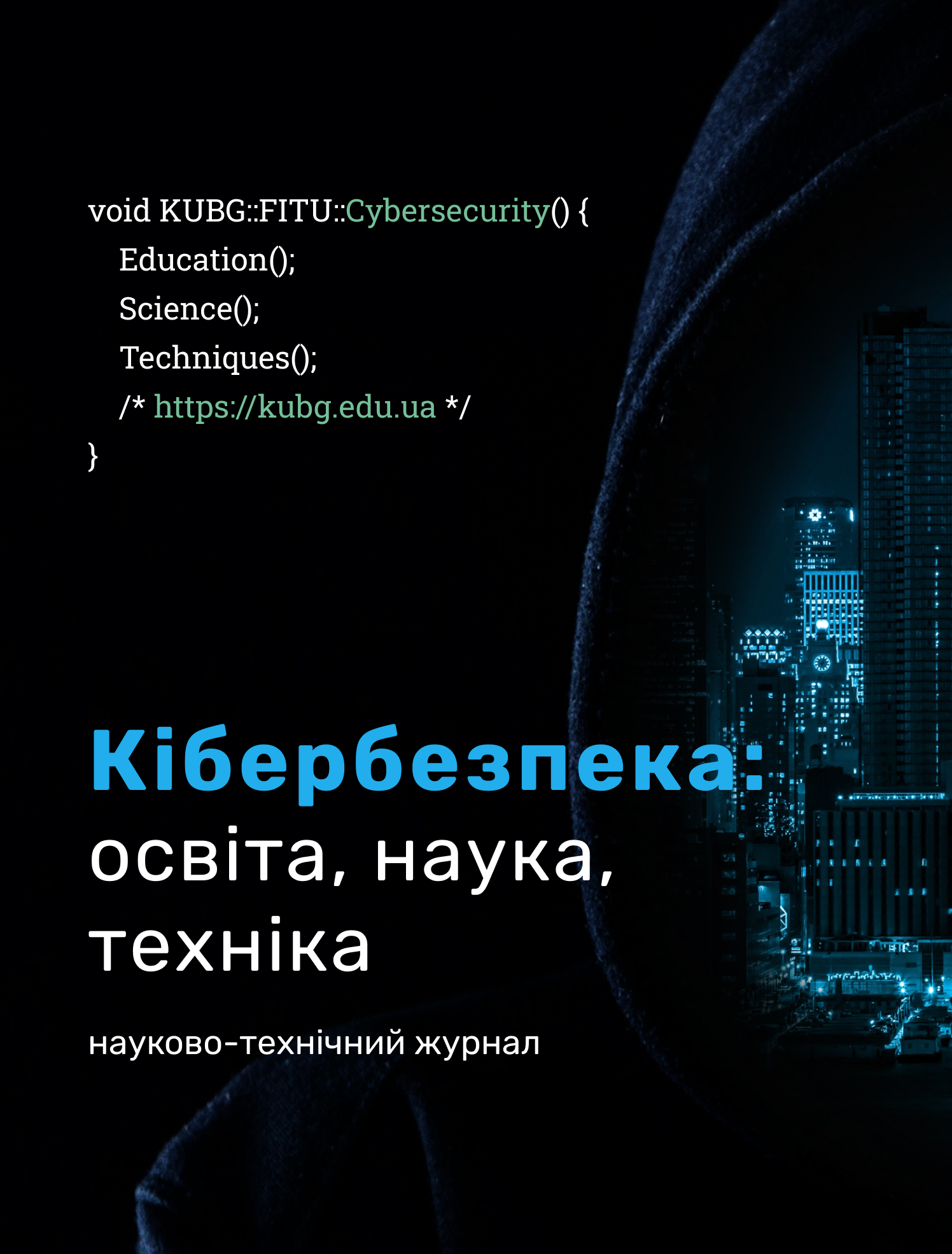TOOLS OF IMPROVING THE DIGITAL COMPETENCE LEVEL OF CYBER SECURITY PROFESSIONALS IN THE EDUCATIONAL PROCESS
DOI:
https://doi.org/10.28925/2663-4023.2022.15.93109Keywords:
cyber security professionals; digital literacy; digital competence; digital tools; digital technologyAbstract
The article analyzes the accrued national and foreign developments regarding the problems of digital competence formation and effective use of information technology in education. The components of digital competence are considered, which provide for a confident, critical and responsible interaction with digital technology for education, work and participation in social activities. The results of a global information security research are presented along with surveys of employees of leading cyber companies around the world, including Ukraine, that testify to the necessity of further application and implementation of an integrated approach to education using organizational measures, software and hardware means and management processes at all activity levels of any organization, as well as using the appropriate tools to raise the digital competence level. The essence of the importance of digital tools in the field of cyber security is formulated, which means a set of Internet tools (resources) to protect network environment entities against various information and cyber threats, ensuring proper organization of countering their effect, formation, functioning and evolution of cyber space and development of educational cyber technology and the information society as a whole. Three main groups of digital cyber security tools were analyzed, identified and proposed (professional cyber tools, education cyber tools and communicative cyber tools) that enable the use, access, filtering, evaluating, creating, programming and communicating digital content, managing and protecting information, content, data and digital identities, as well as working effectively with software, devices, artificial intelligence, robots and more. It is proved that present-day work with digital cyber tools and their content requires a reflective, critical and at the same time inquisitive, open and promising attitude to their development, as well as an ethical, safe, effective and responsible approach to their use
Downloads
References
Diorditsa, I. (2016). State of training of cyber security specialist. Visegrad Journal on Human Rights, vyp. 6/1, s. 59-65.
Karpenko, O. V., Arsenovych, L. A. (2020). State cyber education and tools to increase the level of digital competence of the population of Ukraine. Visn. NADU. Seriia «Derzhavne upravlinnia», № 1 (96), s. 95–102.
Morze, N. V. (2019). 3D mapping of digital competence in the education system of Ukraine. Informatsiini tekhnolohii i zasoby navchannia, t. 70, № 2, s. 28-42.
Scott, C. (2015). The Futures of Learning 3: What kind of pedagogies for the 21st century?. UNESCO Education Research and Foresight, Paris. [ERF Working Papers Series, no. 15].
Ferrari, A. (2011). Digital Competence in Practice: An Analysis of Frameworks”. Luxemburg: IPTS-JRC.
Martin, A., Grudziecki, J. (2006). Concepts and Tools for Digital Literacy Development. Innovations in Teaching and Learning inInformation and Computer Sciences, vol. 5, no. 4, pp. 246-264.
Ala-Mutka, K. (2011). Mapping Digital Competence: Towards a Conceptual Understanding. Luxemburg: IPTSJRC.
Digital Agenda of Ukraine - 2020 (“Digital Agenda” - 2020) Conceptual principles. Priority areas, initiatives, projects of “digitalization” of Ukraine until 2020. https://ucci.org.ua/uploads/files/58e78ee3c3922.pdf.
The results of EY's Global Information Security Survey show that cybersecurity remains an important issue on the organizations' agenda. Website of the European Business Association EBA. https://eba.com.ua/rezultaty-globalnogo-doslidzhennya-ey-z-informatsijnoyi-bezpeky-pokazuyut-shho-kiberbezpeka-zalyshayetsya-vazhlyvym-pytannyam-poryadku-dennogo-organizatsij/.
How to Improve Facebook Engagement in 2016. https://www.webhostingsecretrevealed.net/uk/blog/socialmedia-marketing/social-media-safety-5-dangers-every-influencer-needs-to-know-about/.




